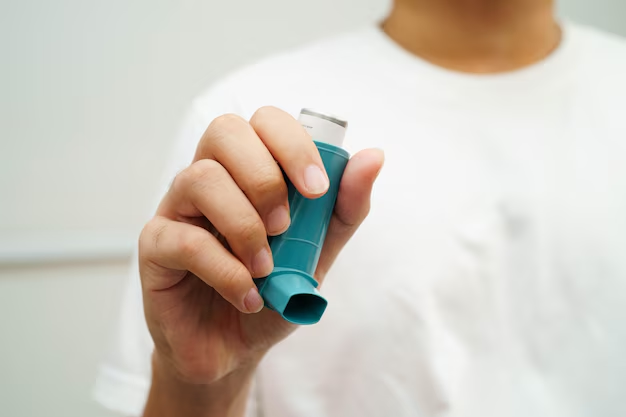Your Guide to Can Asthma Cause Hypertension
What You Get:
Free Guide
Free, helpful information about HyperTension FAQ and related Can Asthma Cause Hypertension topics.
Helpful Information
Get clear and easy-to-understand details about Can Asthma Cause Hypertension topics and resources.
Personalized Offers
Answer a few optional questions to receive offers or information related to HyperTension FAQ. The survey is optional and not required to access your free guide.
Does Asthma Lead to High Blood Pressure? Facts You Need to Know
Asthma and hypertension, or high blood pressure, often coexist, yet it's not entirely clear whether one directly causes the other. Understanding the relationship between these two conditions is crucial for effectively managing your health and improving your quality of life.
Understanding the Connection
Asthma is a chronic lung condition characterized by inflammation and narrowing of the airways, leading to difficulty in breathing. Hypertension occurs when the force of the blood against your artery walls is too high, which can damage your arteries and lead to severe health problems.
Research has shown that individuals with asthma may have a higher risk of developing hypertension. Several possible explanations exist for this connection:
- Inflammation: Both asthma and hypertension involve inflammation. Chronic inflammation in asthma might contribute to the development of high blood pressure.
- Medication Side Effects: Some asthma medications, particularly oral corticosteroids, have side effects that can increase blood pressure.
- Lifestyle Factors: Asthma might affect daily physical activity, leading to weight gain and a sedentary lifestyle, both risk factors for hypertension.
Yet, it's important to note that while these factors suggest a link, asthma does not automatically cause hypertension. Each condition should be diagnosed and treated individually by healthcare professionals.
Managing Health Both Conditions
If you have both asthma and hypertension, effective management is essential. Here are some steps to consider:
- Regular Check-Ups: Keep up with routine doctor visits to monitor your blood pressure and asthma.
- Medication Management: Ensure that your healthcare provider is aware of all medications you are taking to avoid interactions that could worsen either condition.
- Healthy Lifestyle: Incorporate regular exercise, a balanced diet, and weight management into your routine to help control both conditions.
Explore Financial and Educational Resources
Managing chronic conditions can come with financial burdens. Fortunately, there are several resources and programs available that may help ease these concerns:
- Government Aid Programs: Medicaid and Medicare might cover all or part of asthma and hypertension treatments.
- Financial Assistance: Check with local health organizations for programs that offer free or low-cost medication.
- Educational Grants and Scholarships: If your condition affects your ability to study or work, some institutions offer grants and scholarships for individuals with chronic health issues.
💡 Helpful Resources:
- Healthcare Coverage:
- Medicaid
- Medicare
- Financial Support:
- Prescription Assistance Programs
- Non-Profit Health Organizations
- Education and Training:
- Scholarships for Students with Disabilities
- Online Courses for Health Management
Taking advantage of these resources can alleviate financial stress and provide support for managing both asthma and hypertension. Prioritize your health by seeking the right support and adopting lifestyle changes that foster well-being.
What You Get:
Free HyperTension FAQ Guide
Free, helpful information about Can Asthma Cause Hypertension and related resources.

Helpful Information
Get clear, easy-to-understand details about Can Asthma Cause Hypertension topics.

Optional Personalized Offers
Answer a few optional questions to see offers or information related to HyperTension FAQ. Participation is not required to get your free guide.


Discover More
- a 66 Year Old Female With a History Of Hypertension
- Are Eggs Bad For Hypertension
- Are Eggs Good For Hypertension
- Are Endocrine Disorders Causing Hypertension Rare
- Can Adderall Cause Hypertension
- Can Alcohol Cause Hypertension
- Can Allergies Cause Hypertension
- Can Anemci People Get Hypertension
- Can Anemia Cause Hypertension
- Can Antibiotics Cause Hypertension
